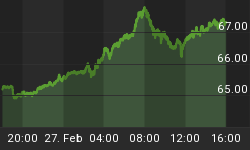A decade ago the decisions of the Bank of Japan and the People's Bank of China might have been reported, but not widely. Somewhere in the back pages of the paper those musings would occasionally be found. Few were interested, and fewer yet knew these institutions existed. Today though the interconnected nature of financial markets, as well as the economic markets, is widely known. What happens in those markets has implications for developments in your financial markets. To some this might be a loss of sovereignty, but economic sovereignty has been fading since the Phoenicians.
Sometime by the end of the year the U.S. will owe foreign central banks $2 trillion dollars. Individual foreign investors have a similarly large pile of U.S. debt. This week the infamous gang of fantasy forecasters, the FOMC, is meeting. In all the discussions and analysis of this event is a fatal flaw. The presumption is that domestic economic concerns, such as the collapsing U.S. mortgage and housing markets, are the determinants of U. S. interest rates. When someone owes the "bank" two trillion dollars, the "bank" set the rate. Do a test. Call your credit card company or your mortgage lender. Tell them you have decided to lower the interest rate on your loans.
With the yen having bottomed, billions of dollars of funds will flow out of U.S. financial market to repay yen denominated loans. The yen can only strengthen with that flow, given less accommodative stance of Bank of Japan. Despite the computer algorithms, currency mismatch is a well documented path to financial difficulties. And now People's Bank of China is going to do something with its cash flow rather than fund the U.S. Treasury. Only question remaining for U.S. dollar is how low will it go.
Finding an example where a depreciating national money led to lower interest rates is difficult. No, it is impossible to do. Depreciating national monies lead to higher interest rates, recessions, and financial bear markets. Many are calling a bottom in the U.S. housing industry, but grabbing a falling knife rarely is painless. The U.S. economy is already sliding into a recession due to imploding mortgage market. Higher interest rates will only exacerbate this situation.
As we recently reported to our readers, Gold, Silver and Gold stocks gave a number of important buy signals in the last week or so. Since then, prices have moved higher. If your portfolio or 401-k is void of these investments, early retirement is not likely in your future. On price weakness, add Gold, Silver and GDX to your portfolio. In any event, diversification is always a positive.
GOLD THOUGHTS come from Ned W. Schmidt,CFA,CEBS, publisher of The Value View Gold Report, monthly, and Trading Thoughts, weekly. To receive a trial subscription to these publications simply send Net a note at this address valueviewgoldreport@earthlink.net.















